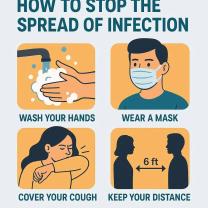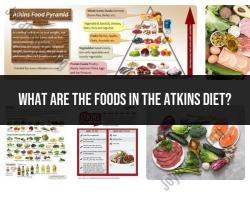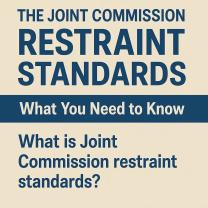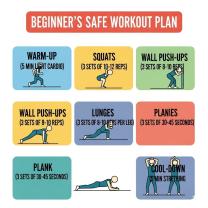What type of training is required for nutrition educators?
Training Requirements for Nutrition Educators Explained
Nutrition educators play a critical role in helping individuals and communities make healthier food choices. To provide accurate and effective guidance, they must meet specific training requirements that ensure they are knowledgeable, competent, and up-to-date with current dietary guidelines.
What is a Nutrition Educator?
A nutrition educator is a professional who teaches, advises, or guides people on healthy eating, nutrition principles, and lifestyle habits. They work in a variety of settings, including schools, community programs, healthcare facilities, and corporate wellness programs.
Core Training Requirements for Nutrition Educators
1. Educational Background
Most positions require at least a bachelor’s degree in nutrition, dietetics, public health, or a related field.
Coursework typically covers subjects such as:
Human anatomy and physiology
Food science and safety
Nutritional assessment and counseling
Public health and community nutrition
2. Certification and Credentials
Depending on the role, nutrition educators may need:
Registered Dietitian (RD) or Registered Dietitian Nutritionist (RDN) credentials.
State-specific certifications for teaching or community health work.
Certification ensures that educators meet professional standards and adhere to ethical practices.
3. Specialized Training
Behavioral Change Techniques: Learn how to motivate clients to adopt healthier habits.
Cultural Competency: Understanding diverse dietary practices and needs.
Program Planning and Evaluation: Skills for designing effective nutrition programs.
4. Continuing Education
Nutrition guidelines and research are constantly evolving.
Educators must participate in continuing education programs to maintain credentials and stay current with best practices.
5. Practical Experience
Hands-on experience through internships, supervised practice, or community projects is often required.
Practical training helps educators apply theory to real-life scenarios and develop effective teaching strategies.
Why Proper Training Matters
Ensures clients receive accurate, science-based guidance.
Helps prevent the spread of misinformation about nutrition.
Builds credibility and professionalism in community and clinical settings.
Final Thoughts
Training requirements for nutrition educators combine formal education, professional certification, practical experience, and ongoing learning. By meeting these standards, nutrition educators can effectively support healthy eating habits, promote public health, and make a meaningful impact in the communities they serve.
The field of nutrition education is vital for promoting healthy eating habits and improving public health. Nutrition educators work in various settings, from community centers and schools to healthcare facilities and private practice. The training, credentialing, and ongoing professional development for nutrition educators are crucial to ensure they provide accurate, evidence-based information.
Here's a comprehensive look at what's involved in becoming and succeeding as a nutrition educator:
Required Training for Nutrition Educators
The educational requirements for nutrition educators can vary depending on the specific role and employer, but generally, a strong academic background in nutrition or a related field is necessary.
Bachelor's Degree: This is often the minimum entry-level requirement. Recommended majors include Nutrition, Dietetics, Food Science, Public Health, or Health Science. A bachelor's degree can qualify individuals for entry-level positions in fitness, food service, and some non-clinical nutrition roles.
Master's Degree: Many nutrition educator positions, especially those involving more advanced counseling, program development, or academic roles, prefer or require a graduate degree. A Master of Science (M.S.) in Nutritional Sciences, Public Health Nutrition, or a Master of Public Health (MPH) with a nutrition concentration is highly beneficial. Graduate coursework often includes dietetics, global food systems, human nutrition (evidence-based policy-making), physiology, metabolism, and behavior change strategies.
Doctorate: For those aspiring to academic research, university-level teaching, or high-level policy roles, a Doctorate in Nutritional Science or a related field may be pursued.
Core Topics Covered in Nutrition Education Programs
Nutrition education programs, whether at the undergraduate or graduate level, cover a broad range of topics designed to equip educators with comprehensive knowledge and practical skills. Core topics typically include:
Basic Nutrition Science: Understanding macronutrients (carbohydrates, proteins, fats), micronutrients (vitamins, minerals), water, and their roles in the body.
Food Groups and Dietary Guidelines: In-depth knowledge of national dietary guidelines (e.g., Dietary Guidelines for Americans, ChooseMyPlate.gov) and how to apply them to diverse populations.
Food Safety and Preparation: Principles of safe food handling, storage, and preparation to prevent foodborne illnesses.
Diet and Health Conditions: The relationship between diet and chronic diseases (e.g., heart disease, diabetes, obesity, hypertension), as well as specific nutritional needs for various health conditions.
Lifecycle Nutrition: Nutritional requirements and considerations across different life stages, from infancy and childhood to adolescence, adulthood, and older adulthood. This often includes topics like infant feeding, child nutrition, and nutritional challenges in the elderly.
Behavior Change and Counseling: Strategies and theories to help individuals and communities adopt healthier eating habits, including motivational interviewing, communication skills, and counseling techniques.
Community Nutrition and Public Health: Understanding food systems, food security, food access issues, and developing and implementing community-based nutrition programs. This may also involve policy, systems, and environmental (PSE) approaches.
Food Resource Management: Teaching individuals and families how to stretch food dollars, plan nutritious meals on a budget, and manage food waste.
Food Labeling: How to read and interpret food labels to make informed food choices.
Cultural Competence: Understanding and respecting diverse cultural food practices and preferences when delivering nutrition education.
Certification and Credentialing Options
While the title "nutrition educator" may not always require a specific state license, several certifications and credentials can significantly enhance a professional's credibility and career opportunities.
Registered Dietitian Nutritionist (RDN) / Registered Dietitian (RD): This is one of the most recognized and rigorous credentials in the nutrition field. To become an RDN, one typically needs:
A bachelor's degree (and after January 1, 2024, a master's degree) from an Accreditation Council for Education in Nutrition and Dietetics (ACEND) accredited program.
Completion of a supervised practice dietetic internship (typically 1,000+ hours).
Passing the national examination administered by the Commission on Dietetic Registration (CDR).
RDNs are qualified to provide medical nutrition therapy and can work in clinical settings, community programs, food service, and more.
Certified Nutrition Specialist (CNS): Offered by the Board for Certification of Nutrition Specialists (BCNS), this credential emphasizes personalized nutrition care. Requirements include:
A master's or doctoral degree in nutrition or a related field.
1,000 hours of supervised practice experience.
Passing the CNS examination.
CNS certification can lead to licensure in some states.
Certified Health Education Specialist (CHES) / Master Certified Health Education Specialist (MCHES): Offered by the National Commission for Health Education Credentialing, Inc. (NCHEC), these credentials recognize professionals who plan, implement, and evaluate health education programs. While broader than just nutrition, they are highly relevant for nutrition educators working in community or public health settings. Requirements involve a bachelor's or master's degree in health education or a related field, and passing an exam.
School Nutrition Specialist (SNS): Offered by the School Nutrition Association (SNA), this credential is specifically for professionals managing school nutrition programs. It requires meeting eligibility criteria (including education and experience) and passing a comprehensive exam. SNA also offers a Certificate in School Nutrition for various levels of school nutrition staff.
Dietetic Technician, Registered (NDTR): This credential requires an associate's degree from an ACEND-accredited program and completion of supervised practice, or a bachelor's degree from an ACEND-accredited didactic program. NDTRs often work under the supervision of RDNs.
Continuing Education Requirements
Maintaining most professional nutrition credentials requires ongoing continuing education (CE) or continuing professional education (CPE) units to ensure practitioners stay current with the latest science and best practices.
Registered Dietitian Nutritionists (RDNs): RDNs are required by the CDR to complete 75 CPE units every 5 years. These can be earned through various activities, including:
Live webinars, online courses, and self-study modules.
Attending conferences (e.g., the Academy of Nutrition and Dietetics' Food & Nutrition Conference & Expo - FNCE®).
Completing online certificates of training.
Teaching classes or publishing articles.
Certified Nutrition Specialists (CNS): The BCNS also has specific continuing education requirements for CNS credential holders, which must be fulfilled to maintain certification.
Certified Health Education Specialists (CHES/MCHES): NCHEC requires CHES and MCHES certificants to complete 75 Professional Development Units (PDUs) over a 5-year cycle.
State-Specific Licensing: In states that license nutritionists or dietitians, there are typically annual or biennial continuing education requirements to renew the license.
These requirements ensure that nutrition educators continuously update their knowledge and skills in an evolving field.
Resources for Professional Development in Nutrition
Numerous resources are available for nutrition educators seeking professional development:
Professional Organizations:
Academy of Nutrition and Dietetics (AND) / eatrightPRO.org: The world's largest organization of food and nutrition professionals. Offers extensive CPE opportunities, publications (e.g., Journal of the Academy of Nutrition and Dietetics, Nutrition Care Manual), networking, and career resources.
American Society for Nutrition (ASN): Focuses on nutrition research and science, offering scientific sessions, meetings, and webinars.
National Commission for Health Education Credentialing (NCHEC): Provides resources for CHES/MCHES certification and continuing education.
School Nutrition Association (SNA): Dedicated to school nutrition professionals, offering credentialing and training resources.
Society for Nutrition Education and Behavior (SNEB): Promotes nutrition education research and practice.
Government Agencies and Initiatives:
USDA National Agricultural Library (NAL): Provides a comprehensive "Professional and Career Development - Food and Nutrition" section with links to online learning, career resources, and job information.
USDA SNAP-Ed Connection: Offers online training courses (like the National Nutrition Certification Program), webinars, and resources for nutrition educators working with low-income populations.
USDA NIFA (National Institute of Food and Agriculture): Supports research and extension efforts in nutrition, partnering with Cooperative Extension to deliver community-based programs.
CDC (Centers for Disease Control and Prevention): Provides resources on nutrition, physical activity, and health.
Dietary Guidelines for Americans (DietaryGuidelines.gov): Offers CPE opportunities related to understanding and applying the latest dietary guidelines.
Online Learning Platforms: Many universities and online learning providers offer courses, certificates, and webinars in various nutrition education topics.
Conferences and Workshops: Attending national and regional conferences (like FNCE®) provides opportunities for learning, networking, and earning CEUs.
Journals and Publications: Staying current with peer-reviewed journals (e.g., Journal of the Academy of Nutrition and Dietetics) and reputable publications is crucial for evidence-based practice.
Mentorship Programs: Some professional organizations offer mentorship programs to help emerging professionals navigate their careers.













